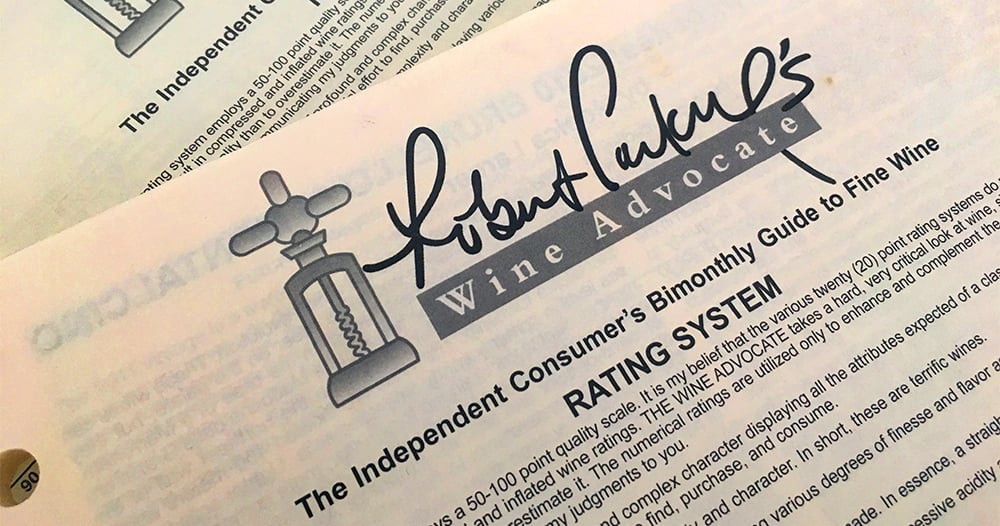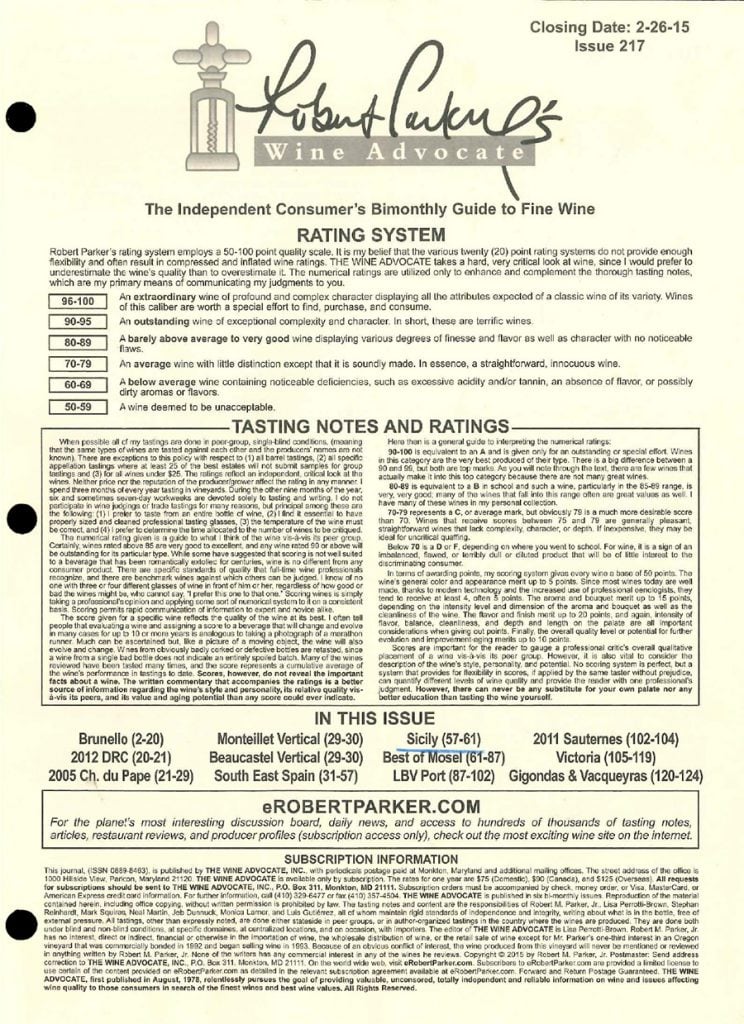Annuncio con sentimenti contrastanti che il padre della moderna critica del vino, fondatore della nostra testata, mio più grande mentore e caro amico, Robert M. Parker Jr., da oggi sospenderà e si ritirerà formalmente dalla sua attività di critico presso Robert Parker Wine Advocate
Queste le parole usate dalla sua collaboratrice Lisa Perrotti-Brown il 16 maggio scorso per annunciare il ritiro professionale di uno dei critici più amati (e contestati) dalle cantine francesi ed europee. Da mancato avvocato a leggenda del giornalismo del vino, Parker ha letteralmente stravolto il sistema delle valutazioni del vino introducendo il sistema dei Rating (punteggi) in centesimi. Dal 1978, questo l’anno di inizio dell’attività, i report di Parker – soprattutto sui vini Bordeux – hanno fatto scuola di critica e spostato l’attenzione sulle dinamiche commerciali e della informazioni nel mondo del vino. Gli si deve comunque dare merito del fatto di aver valorizzato e reso importanti alcune (oggi note) aree vinicole europee.
Dal 2012 Wine Advocate appartiene ad un fondo di investimenti asiatico e Michelin (40%). I rumors sono per una estensione della partecipazione sino al 100%.
Riportiamo integralmente e in lingua inglese il comunicato pubblicato sulla sua testata.
 The father of modern wine criticism, our publication’s founder and namesake, my greatest mentor and a dear friend, it is with mixed feelings that I announce that Robert M. Parker Jr. will, as of today, be formally hanging up his wine criticism boots and retiring from Robert Parker Wine Advocate. I say “mixed,” because if anyone deserves a rest from our frenetic world of wine reviews, it is Bob. And yet, his contribution to significantly raising the bar of critical, unbiased wine writing and wine quality cannot be overestimated. His unrivaled tasting experience and expert, straight-talking opinions will be sorely missed by consumers and trade alike.
The father of modern wine criticism, our publication’s founder and namesake, my greatest mentor and a dear friend, it is with mixed feelings that I announce that Robert M. Parker Jr. will, as of today, be formally hanging up his wine criticism boots and retiring from Robert Parker Wine Advocate. I say “mixed,” because if anyone deserves a rest from our frenetic world of wine reviews, it is Bob. And yet, his contribution to significantly raising the bar of critical, unbiased wine writing and wine quality cannot be overestimated. His unrivaled tasting experience and expert, straight-talking opinions will be sorely missed by consumers and trade alike.The origins of The Wine Advocate can be traced back to as far as 1967, when Robert Parker took a brief break from American college life to make his first trip to France on the heels of a young lady who was studying in Alsace. That lady was soon to become Mrs. Patricia Parker and remains so to this day. Apart from getting the girl, Parker discovered wine during this first trip to France and developed a taste for it. In the mid to late 1960s, the seedling concept of The Wine Advocate took root in Robert Parker’s mind, but his friends and family, bent on him becoming a lawyer, discouraged this as fanciful. He graduated from the University of Maryland School of Law in 1973 and joined a firm as a practicing lawyer near where he and his young wife had grown up, in Baltimore, Maryland. But his professional heart was already lost to wine, and in 1978 Parker decided to put his money where his mouth was and began publishing his own wine guide, The Baltimore-Washington Wine Advocate.
In the early 1970s, when Parker was conceiving of writing his own wine guide, he was taken with the work of Ralph Nader, an American political activist who sought to “out” corporate and political corruption by challenging compromised propaganda. Parker recognized that much of what was then being written about wine was compromised by the financial agendas of many of the famous wine writers of the day. He dreamt of a publication that could be free of financial ties to wineries and merchants, a guide that would produce wholly unbiased views on wines and that served only the interests of wine consumers. This would be a magazine that would be funded purely by subscribers—the people who buy, read and use it. And thus, The Wine Advocatestarted and remains true to this day.
In 1979 the name of Robert Parker’s magazine was changed to The Wine Advocate. In 1983, Parker’s controversial glowing reviews of the 1982 Bordeaux vintage, tasted from barrels in the wineries, created a stir among most other major wine writers who felt the vintage was too ripe and the wines wouldn’t age. When Parker turned out to be right about the greatness of this vintage, his reputation and subscriber base soared. By 1984 he was able to leave his law career to focus on The Wine Advocate and wine full-time.
Bob, here’s to wishing you a well-earned rest in your retirement. Savor each day with the pleasure of enjoying your greatest wine discoveries, as you have brought such joy to your readership. Cheers!





